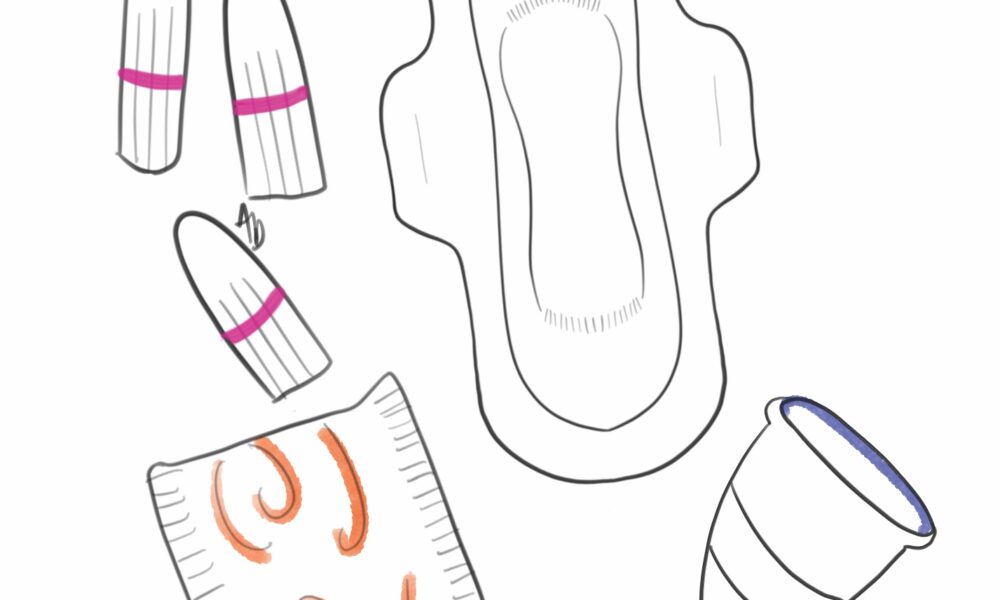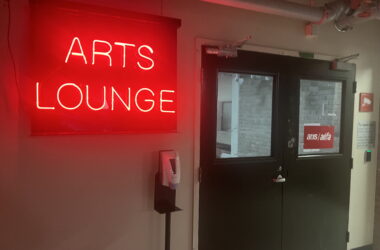A line of students filled the McLennan-Redpath library complex lobby on Jan. 23, waiting for the first menstrual product pick-up of the semester to begin. The Students’ Society of McGill University (SSMU) organized the pick-up as part of its Menstrual Health Project––an initiative that began in 2017 to provide free menstrual products to students via dispensers in bathrooms across campus.
Among the free products available to students were disposable pads and tampons, along with reusable products, such as menstrual underwear, reusable pads, and menstrual cups and discs. All the disposable products are biodegradable.
The SSMU Menstrual Health Project funds the initiative through a non-opt outable undergraduate student fee of $2.40 per semester. The project also received $50,000 from the McGill Office of Sustainability’s partially student-funded Sustainability Projects Fund (SPF) to offer more sustainable products as of Fall 2022.
SSMU vice-president (VP) University Affairs Kerry Yang explained that reusable products, although more cost-effective in the long run, tend to be more expensive up-front, making them inaccessible for many students.
“Some students find out they don’t really like [a reusable product] but we want to give students the option to try different things and see what they like and not have cost be a barrier that prohibits them from getting access,” Yang said in an interview with The McGill Tribune.
SSMU Menstrual Health Commissioner Julia Miracle noted that most reusable products require access to private sinks, which may not always be available for students in university bathrooms or residence halls. So, offering sustainable disposable products is also critical to ensure that students can use what is most comfortable for them.
Universities across Canada such as Western University and the University of Toronto are increasingly receiving administrative support to provide free menstrual products. While Yang is in support of funding and administrative support from McGill, he feels that there are benefits to the project being student-run.
“The team does have the ability to push in different directions which is really great and we want to keep the autonomy,” he said.
Miracle agrees thatt McGill should step up to support the free menstrual product initiative but maintains that student involvement in the pick-up is important as the products offered are personalized and based on student requests.
“Keeping the monthly pick-ups student-run could be a great initiative […] for students to learn facilitation roles, connect with the community,” Miracle said. “We could potentially […] have McGill institutionalize the bathroom [product distribution], but have [SSMU] keep the pick-ups and try to expand.”
Students interviewed by the Tribune feel positively about the student-funded aspect of the project. Julia Toth, U3 Arts and Science, appreciates the quality of the service the fee has made possible.
“I love it. I think we have so many non-opt outable fees that we might as well start having things that actually benefit us, and this really benefits me,” Toth said. “I hardly actually go buy tampons anymore.”
Amelie Philipp Kirschner, U1 Arts, pointed out that the fees seem inconsequential compared to the lifetime costs otherwise associated with menstrual products. In Canada, menstruating people can spend up to $6,000 on menstrual products over their lifetimes.
“If we paid for all this by ourselves it would be so much more […] so I am fine with it because I use it,” Kirschner said.
One student in line for the pick-up told the Tribune that having the pick-up in a public location helps destigmatize periods. Providing students with access to hygienic products also means lessening the worries menstruation may otherwise bring, such as bleeding through clothes or not being able to participate in sports.
Yang and Miracle echoed these concerns. By removing the financial barriers associated with menstrual products, menstruating students can use their money for other necessities.
“We really want students who menstruate to have equal opportunities,” Yang said. “We want to foster a culture and community of sustainability not just economically, not just socially, [but also] addressing menstrual equity.”








